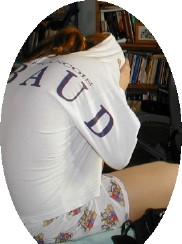Much of what we consider ‘natural’ does not seem to come naturally at all to children with autism. Understanding this fact will decrease the problems with the child’s behavior because it will make it possible for teachers and other to prevent problems before they happen.
Most young children naturally stay to their parents. Very young children do not wander away, unless by accident. A young child who is frightened will ‘naturally’ run back to her caregiver. Of his son, Blastland says,
“Ever since he’s been able to get about, Joe has been drawn to the distant horizon, showing no fear.”
Speaking of fear, that is also something that we learn. Among other incidents, the father mentions how his son was hit by a car at age eight years old, crossing a busy street. He had slipped out of the house when the rest of the family was sleeping and charged away, wearing only his underwear.
 Blastland says,
Blastland says,
“The problem is that he doesn’t instinctively know what to be afraid of, and nor does anyone else. There’s nothing in our genes to tell us that unattended luggage is scary. Fear has to be in part socially constructed, it has to be learned; other people has to tell us to some extent what to be afraid of. That should be obvious enough, for unless we know what a fast moving car can do or what a gun is, why should we fear them?”
Fear is learned. Embarrassment is learned. To be embarrassed, you must be able to imagine how you look to other people.
